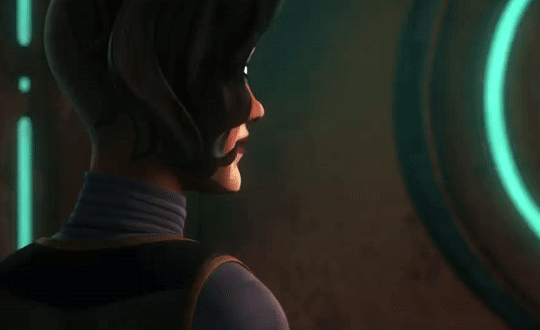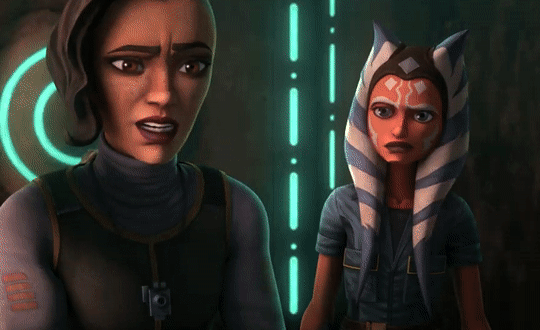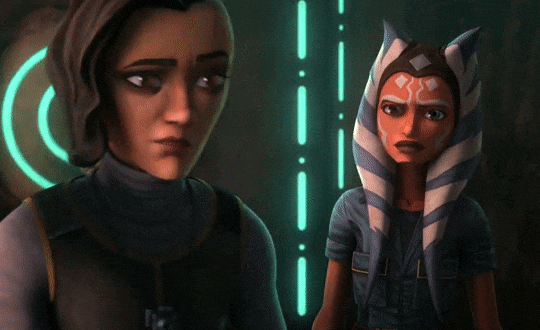#narratively though it is his downfall to exist in the wrong story as an element to explore and subvert and chew it down to the bone
Explore tagged Tumblr posts
Photo



@ap-trash-compactor replied:
1/7 I wanna preface this by saying I agree with everything you’re saying here but I think there’s another layer to how Raffa’s story functions both textually and meta-textually, and to what it illustrates about how many people in the Galaxy /might/ perceive the Jedi, which I personally haven’t seen addressed yet. Sorry in advance if this is something you’ve heard/read/discussed ten million times already, but... 2/7 If you took Raffa’s story out of Star Wars and put it into a contemporary drama, changed the word “Jedi” to the word “police,” and made the particulars about a high-speed car chase? I think it would sound pretty believable. And I think this illustrates something Palpatine does through the mechanism of the Clone Wars to make the position of the Jedi especially vulnerable or precarious wrt to public opinion. 3/7 Even if every single Jedi engages w the power and authority of their military or police role only in the best intentioned, most good-faith way imaginable (which the Umbara arc tells us doesn’t always happen), any time you are in a role where you, even have without wanting or intending to, exercise the power of life and death other lives, you will cause pain and be a target for resentment. Someone will lose someone, and be angry. 4/7 No matter how good or how well-intentioned or how compassionate they are, during the Clone Wars the Jedi are forced into the role of a state authority exercising the power of life and death. They are not only a cultural minority during the Clone Wars. They are also a branch of the state, and in that role they sometimes either kill people, or are involved in events where people die and where, no matter their intentions, they are the face of the state and the voice of authority. 5/7 Many of the military and police actions shown in different episodes of this series leave destruction in their wake. The Jedi’s participation is barely by choice and almost never by preference— but if you are one of the Raffas of the galaxy and your parents just died, the distinction probably does not matter much. I think this is a corner Palpatine absolutely wanted to paint the Jedi into, because it absolutely serves his goals. 6/7 There are not many Jedi during the Clone Wars. Certainly there are not many compared to the problems they are trying to fix. I have no doubt Luminara tried her best, wanted a different outcome, and gave Raffa all the comfort she had the time and the opportunity to give... But if you are one of the Raffas of the galaxy and your only direct experience of the Jedi is like the one Raffa describes? You’re probably primed to consume all of Palpatine’s worst lies. 7/7 If you’re Palpatine, making the Jedi rush from violent crisis to violent crisis doesn’t just distract them from the fact that you’re a Sith Lord — it also makes the Jedi into the face of a lot of negative, hurtful interactions with the state, which is going to impact the way people see them.
I think you and I are very much on the same page! I have discussed this before (the public’s turning on the Jedi), but I’m always down for discussing it again! Especially when I love pretty much allllll of this. If you’re Palpatine, making the Jedi rush from violent crisis to violent crisis doesn’t just distract them from the fact that you’re a Sith Lord — it also makes the Jedi into the face of a lot of negative, hurtful interactions with the state, which is going to impact the way people see them. You are spot on with your summation, to the point it’s almost hard for me to respond with anything because I feel like all I can do is bang my fist on the table and go, “Yes! This is what I’ve been talking about!” Though, of course, there is a lot going on here that’s making it complicated. This post that you’re responding to is focused more specifically on the theme of unreliable narrators + the close associations this season has had with Revenge of the Sith (the moments that make us sit up and go, “Oh, that’s foreshadowing for stuff in ROTS!” like Padme’s pregnancy, Anakin’s advice to Rex, etc.), but there’s also what you’re talking about here--that it’s been a long-running theme in the GFFA that public sentiment turned against the Jedi and that the causes of that are fascinating. I said a bunch of times that Rafa’s hurt in this episode is valid, that there’s room for both the Jedi acting with honorable intentions and that people don’t trust them, don’t draw comfort from them, that these things are not mutually exclusive and you’re hitting on exactly why--because they were put into a situation where, if they’re not 100% perfect, then they’re going to fall off the pedestal they’ve been put onto. That any flaw they have will then get magnified a hundred times. Luminara seems to have made a point to go back and try to talk to Rafa, to tell her a phrase that is narratively meaningful within Star Wars on a meta level, like, that says to me that she has really good intentions! But that Rafa doesn’t draw any comfort from it, as a non-Force sensitive and someone who probably is left to the Republic’s shitty welfare services (which isn’t the Jedi’s jurisdiction, they’re not social workers and we can’t expect them to be), doesn’t undercut Luminara’s presumed good intentions, just as Luminara’s presumed good intentions don’t undercut Rafa’s hurt. And that it’s understandable--because, as the Maul arc in season 5 says, the Jedi aren’t doing the things that they used to do, that crime is flourishing because they’re being so busy with this war they’ve been drafted into. Even Star Wars: Propaganda makes it clear that public sentiment turned against the Jedi because of a cultural absence, rather than anything they actively did. This is all by design from Palpatine, that he’s keeping them so busy putting out tire fires on Ryloth (who were being slaughtered by the Separatists), on Mon Calamari (who were being enslaved by the Separatists), on Kiros (who were being kidnapped and taken into the resumed Zygerrian slave empire), that they don’t have time to do the things they used to, like take care of a lot of the criminal elements or the outreach programs that we see hinted at in the supplementary material. The Jedi had to make a choice between fighting in a war where entire worlds were being enslaved, that there were only so many of them and they were dying, that they died in droves on Geonosis in Attack of the Clones and they’re dying every day in the war, that they were literally one out of six billion in the galaxy at their height, and that they had a million expectations placed on them. They have very little political capital/power, yet they’re expected to solve all the problems in ways that will last. They’re expected to police the Underworld, but also not police the Underworld because then they’re restricting people. They’re expected to be social workers. They’re expected to fight and die in a war that the public itself refuses to stand up in. And when they don’t live up to those impossible perfections, they’re torn down. This is not to set aside that of course there are instances of people like Trace and Rafa, where the destruction wreaked by chasing down someone like Ziro is going to sometimes cause people to get hurt and, honestly, I don’t feel like Rafa really blamed Luminara for that, given the acknowledgement of the crowded platform she was trying to avoid. But if she had? That, too, would have been reasonable and understandable! That it doesn’t matter if the Jedi were doing literally everything they could, that doesn’t mean there’s not also room for Rafa’s hurt. And that, even if I think there was absolutely nothing that Luminara could say that would have given Rafa comfort, that doesn’t make Rafa’s hurt/viewpoint any less empathizable. My blog tends to focus on the Jedi side of things because those are the characters I’m interested in, not because they’re the only element that matters. In the meta we’re responding to, a lot of the focus is on Luminara and the Jedi because that’s my jam, that’s the part I thrive on, but we’re definitely in agreement that Rafa’s feelings are not wrong and it’s not hard to see where they come from! I do take issue with the idea of--whether it’s true or not, we can all argue about it all day long, but it doesn’t matter if it’s true or not--that if the Jedi are remote and distant from the galaxy, that that narratively is approved of how they then “kind of brought their downfall (aka, violent genocide) on themselves”. That’s something I’ve seen skirted around in commentary from the creators and I’m wary of it leaking into the narrative in a more substantial way. But that’s an entirely separate issue from the fact that anti-Jedi sentiments exist in the narrative and that they led to the Jedi Purge/Jedi genocide. As part of the propaganda and manipulations Palpatine did, yes, absolutely, that is one of the most fascinating things! And that doesn’t mean that there’s not validity to those feelings, even if they’re rooted in propaganda and manipulation! But that, just as there’s room for Rafa’s hurt despite Luminara’s intentions, there’s room for the Jedi’s good intentions despite the public’s hurt and/or mistrust. My thing is that I tend to look at why the Jedi act the way they do and I usually come away with empathy for how they got into the situations they did. Like, take their alignment with the Republic, which was an organization with corruption down to the roots by the time of the Twilight of the Republic, that that association absolutely led to their downfall/genocide. But what else could they do? Being part of the Republic in that way allowed them to actually help people, to have negotiating power, to form treaties that would be honored even when they were no longer on a given planet. If they weren’t under the jurisdiction of the Senate, they could not have helped as many people as they did, especially because how would they even be able to afford starship fuel or housing costs? Would they charge people for their services? That’s a disaster waiting to happen! There’s room for both “the best option for the Jedi was to be part of the Republic and try to improve the system from the inside, which is what they did” AND “the being part of the Republic is what ultimately fucked them”, those things are both true! but if you are one of the Raffas of the galaxy and your parents just died, the distinction probably does not matter much. I think this is a corner Palpatine absolutely wanted to paint the Jedi into, because it absolutely serves his goals. Spot on! I have fun looking at what Luminara’s intentions likely were and what the context of the structure of the show entails, that Rafa’s character doesn’t have to be a reliable narrator to be valuable (and I say this as someone who actually really loves the unreliable narrators of SW, which honestly is almost literally every single character, very few are ones you can take at face value without seeing the circumstances for yourself), but to Rafa it doesn’t really matter what Luminara did or didn’t say, because that’s not what she was looking for or what she got out of that conversation. I can’t say I would act differently in her position! And that’s exactly what Palpatine did. He pulled the Jedi in so many different directions, made them responsible for things that literally no group could possibly have survived with public sentiment intact, and even if the Jedi had been literally perfect (which they weren’t), it wouldn’t have mattered, given that the entire point of the prequels is that you gotta choose between Shitty Option A and Shitty Option B. It’s the galaxy’s worst ever version of, “Which would you rather?” except its real and you have to play the game, because not playing gets you fucked over even faster, like it did with Mandalore.
175 notes
·
View notes